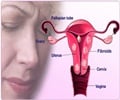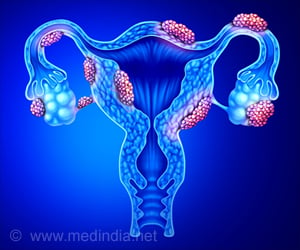A new survey has found that uterine fibroids cause significant fear and morbidity and can compromise workplace performance.

"We conducted this survey to better understand the experience and needs of women with fibroids," says Elizabeth A. Stewart, M.D., lead author and gynecologic surgeon at Mayo Clinic. "Many people are unaware that the vast majority of women will experience uterine fibroids in their lifetime and that this condition can cause significant morbidity for those who are symptomatic."
The survey assessed diagnosis, information-seeking behaviors, attitudes about fertility, impact on work and treatment preferences among women living with uterine fibroids for an average of nearly nine years. The researchers found that women delayed seeking treatment an average of 3.6 years, with 32 percent of women waiting more than five years. Most women reported fears associated with their fibroids, including being afraid that the fibroids will grow (79 percent) and that they will need a hysterectomy (55 percent), as well as fears regarding relationships, sexual function, body image, loss of control and hopelessness. Almost two-thirds (66 percent) of women were concerned about missed days from work due to their symptoms, and 24 percent of employed respondents felt that their symptoms prevented them from reaching their career potential. The vast majority said they prefer a minimally invasive treatment option that preserves the uterus.
Having better treatment options was particularly important to African-American women respondents, who experience the impacts on fertility earlier in their lives.
Uterine fibroids have a threefold increased relative risk and prevalence among African-American women and an earlier onset. The study demonstrated that the burden of uterine fibroids is even more extensive for African-American women than previously reported.
The researchers found that African-American women were significantly more likely to have severe or very severe symptoms, including heavy or prolonged menses and anemia. African-American women more often reported that fibroids interfered with physical activities and relationships and were more likely to miss days from work. Almost one-third (32 percent) of African-American women waited more than five years before seeking treatment for their fibroids, compared to only 17 percent of white women; similarly, while 43 percent of white women say they sought treatment within one year or less, only 20 percent of African-American women did the same. Future fertility and pregnancy were key concerns for African-American women; 71 percent said preserving the uterus was very important or important, versus 41 percent of white women.
Advertisement
Uterine fibroids are the leading cause of hysterectomy in the United States, with nearly half of hysterectomies being performed for uterine fibroids. Hysterectomy involves permanent removal of the uterus, which prevents fibroid recurrence but also results in loss of reproductive potential. A majority of survey respondents (51 percent) noted the importance of having a fibroid treatment option that allows them to keep their uterus and 84 percent stated they prefer a treatment option that does not involve any invasive surgery of any kind.
Advertisement
Source-Eurekalert











